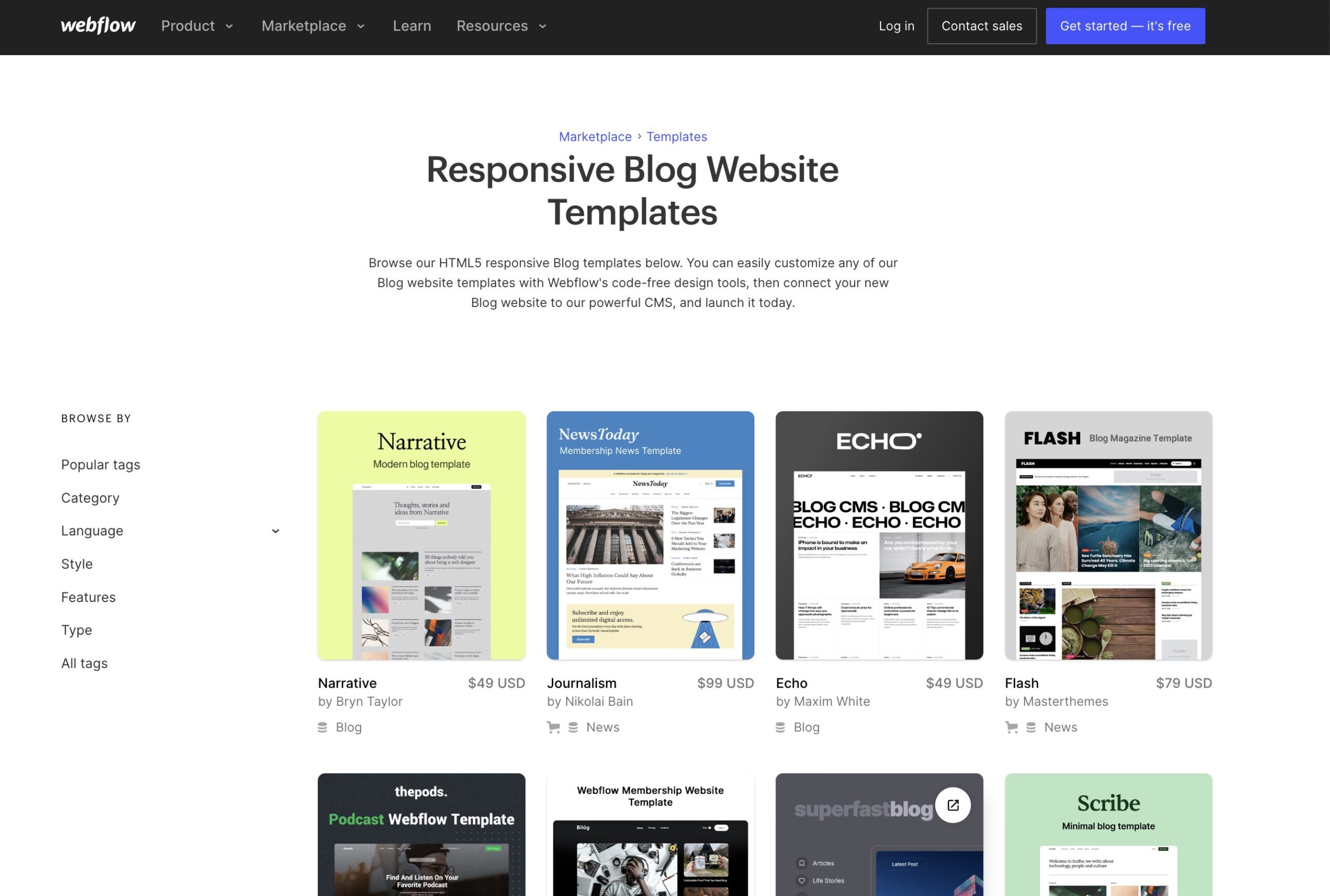Are you excited to take your blog to the next level? If so, then mastering blogging best practices is key. From choosing a platform and creating quality content, to promoting posts and building an audience – these are all essential steps for achieving success.
And guess what? We’ll also explore ways of monetizing your blog and staying motivated throughout it all. Pretty cool, right?
Now, let’s be real. Blogging can be tough, and many bloggers need help finding success. But don’t worry, we’ve got you covered. We’ll start by taking a look at some of the top reasons why bloggers fail, and then we’ll walk you through the best blogging practices.
Get ready to take your blog to the next level!
Why Do Bloggers Fail?
1. Not Knowing Your Audience
One of the biggest mistakes bloggers make is not taking the time to research their target audience.
It’s important to understand who your readers are, what topics they’re interested in, and how they prefer to consume content.
If you know your audience, creating content that resonates with them will be much easier.
Additionally, if you don’t understand who your readers are, it can be hard for you to effectively market and promote your blog posts.
2. Not Tailoring Content Accordingly
Another common mistake bloggers make is not tailoring their content accordingly after researching their audience.
For example, if a majority of your readers are millennials, then creating content that appeals specifically to this age group is essential for success; likewise, if most of your followers are baby boomers, then writing pieces tailored towards this demographic would also be beneficial.
Furthermore, knowing what type of format works best for each particular reader base should also factor into the equation when crafting blog posts as well – some may prefer long-form articles. In contrast, others may gravitate more towards shorter ones or even video tutorials instead.
3. Blogging Inconsistently
The key to successful blogging lies in setting realistic expectations for how often one should post new content on their website, and following through with those promises no matter what obstacles arise.
Consistency is key, and it pays off in spades when done correctly. Never underestimate its importance.
4. Not Using SEO Best Practices
Search engine optimization (SEO) is an essential aspect of any blogger’s online presence. It involves implementing various strategies to increase the visibility of your website on search engine result pages. By optimizing your website for search engines like Google or Bing, you can attract more organic traffic to your site. This can help you increase your page views and ultimately grow your audience over time.
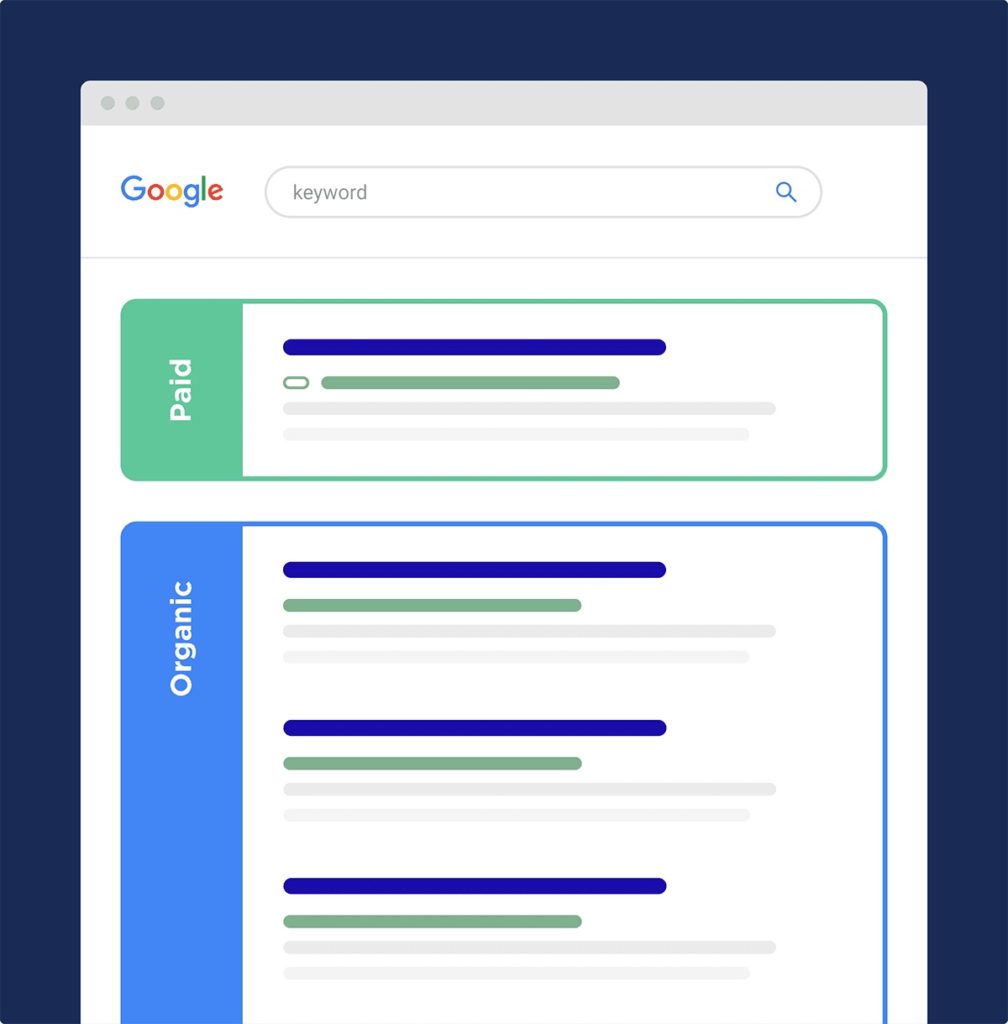
However, many bloggers fail to implement proper SEO best practices. They may neglect basic keyword usage optimization techniques, or overlook the importance of meta descriptions and title tags. By not utilizing these fundamentals, bloggers can miss out on opportunities to improve their search engine rankings and drive more traffic to their site.
To optimize your website for search engines, it’s important to conduct keyword research to identify relevant search terms that your audience is likely to use. You can then use these keywords strategically in your content, including in your headings, body copy, and meta descriptions.
You can use SEO software like Semrush to help you with that.
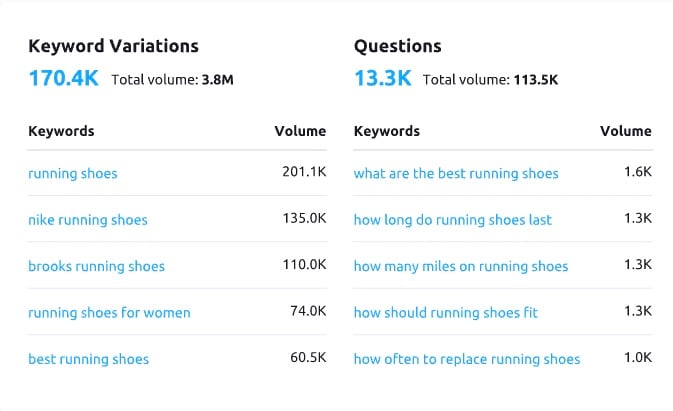
Another important aspect of SEO is link building. By creating high-quality content that other websites want to link to, you can improve your website’s authority and increase your search engine rankings. You can also reach out to other bloggers or websites in your niche to request backlinks to your site.
Overall, implementing proper SEO strategies is critical for any blogger looking to maximize visibility online and increase page views over time. By prioritizing SEO best practices, you can attract more organic traffic to your site and ultimately grow your audience.
5. Not Promoting Their Content
Creating amazing content is not enough if nobody knows about it. In today’s world, where there is a plethora of content available online, it is extremely important to have a strong promotion strategy in place.
While creating great content is the first step, it is equally important to ensure that it reaches the right audience.
By understanding the target audience and identifying the best channels to reach them, a promotion strategy can be tailored to effectively maximize the reach of the content.
A well-crafted promotion strategy can greatly increase the visibility of the content, leading to greater engagement and ultimately, more success. Therefore, having an effective promotion strategy set up beforehand helps tremendously in achieving the desired results.
Blogging Best Practices for Beginners
Avoid Random Ideas
It’s easy to get caught up in the excitement of blogging and come up with ideas that could be more varied or relevant to your overall goals as a business.
Before you start writing, make sure you have an idea of what topics your audience is interested in and how they can help you reach your larger company goals.
Brainstorming around specific questions and concerns prospects may have will ensure each post has a purpose and helps move them closer to achieving their goals.
Focus on Audience Needs
When creating content for your blog, it’s important to remember that it isn’t about what YOU want to tell people — it’s about providing value for readers by addressing their needs first.
Ask yourself if the topic is something they would find interesting or helpful before diving into research or drafting copy, as this will help create posts that truly resonate with them and keep them coming back for more great content from you.
Connect Content To Goals
Once you’ve identified the topics readers are interested in hearing about, consider how those posts can tie into larger company goals like increased website traffic or leads generated from organic search results (SEO).
For example, including keywords related to products or services the business offers could help boost visibility when someone searches for those terms online — driving more potential customers directly onto the site.
This type of strategic planning will benefit readers and drive measurable results for businesses over time – making it a win-win situation..
Choosing Your Main Keyword
The first step in creating a successful blog post is choosing the right keyword. Use sites like Moz to determine the monthly search volume, difficulty and organic click-through rate of your main keyword. Once you’ve identified your main keyword, make sure to include it in your blog title, URL and meta description for maximum SEO impact.
Including Related Keywords
Sprinkle related keywords throughout your post to further optimize it for search engines. This will also help you get more readers as they are likely searching for those related terms. Just be careful not to stuff them into the text – only use them where they naturally fit in with the content.
Writing an Attention-Grabbing Title
A great headline can make or break a blog post so take some time when crafting yours. Aim for one that includes common words, uncommon words, power words and emotion words while still accurately describing what’s inside the article.
Try using CoSchedule’s Headline Analyzer tool if you need help getting started – just remember that including your main keyword is often more important than achieving 70+ points on their scale.
Picking a Niche and Becoming an Expert
To really stand out from other blogs in your industry, choose topics that are niche specific so you can become an expert on them over time. People will start seeing you as a thought leader if they come across multiple posts about this topic written by you which will drive traffic and shares to all of these articles.
Tips on Starting a Blog
Choosing a Blogging Platform
Choosing the right blogging platform is essential for any successful blog. There are a variety of free and paid platforms available, each with its own pros and cons.
Free platforms like WordPress.org offer basic features such as hosting, themes, and plugins but may need certain features that can help your blog stand out from the crowd.
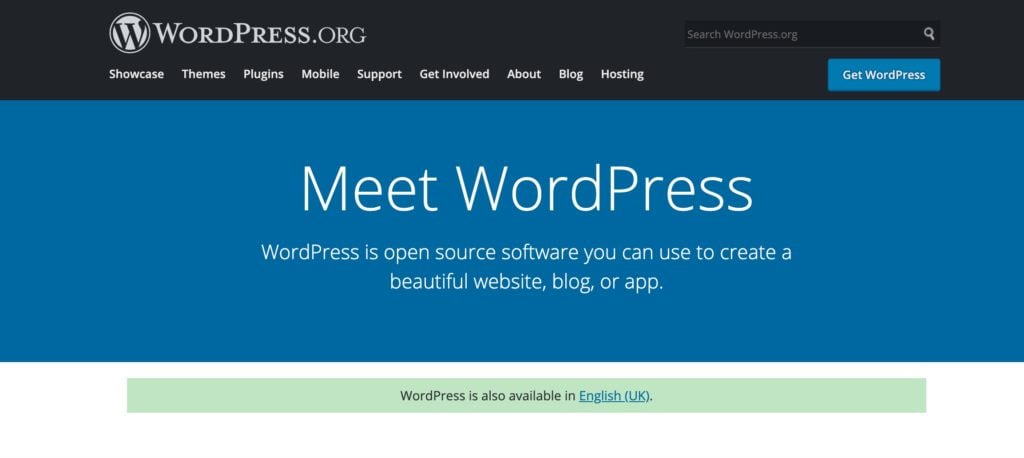
On the other hand, paid platforms like Webflow, Squarespace, or Wix offer more advanced features, such as custom domains and analytics tools but they come at a cost.
You can learn more about starting a blog with Webflow here with our detailed guide.
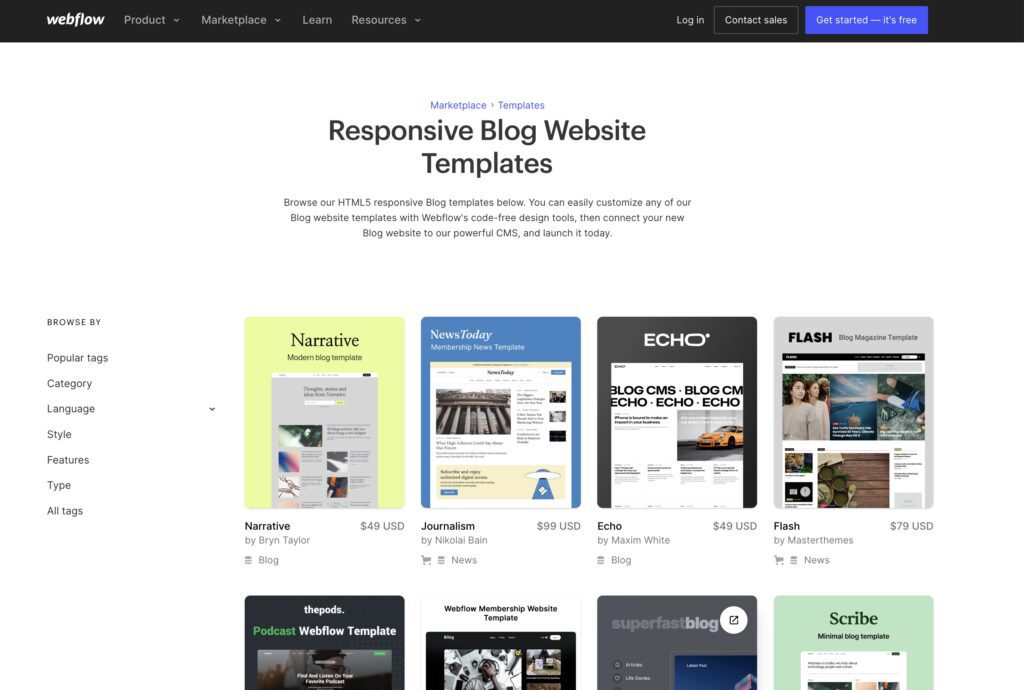
Researching Your Topic
Research is essential for creating quality content. Before you start writing, it’s important to understand the topic and your audience. Take some time to read up on the subject and look at what other people are saying about it.
Ask yourself questions like “What do I want my readers to learn?” or “How can I make this topic interesting?” This will help you develop ideas that are unique and relevant to your readers.
Writing Engaging Content
Once you understand the topic well, it’s time to start writing.
Keep in mind that content should be written in an engaging way so that readers stay interested until the end.
Use simple language, break down complex topics into easy-to-understand chunks, and include visuals such as images or videos when possible.
Also, consider adding stories or personal anecdotes, as these can help draw readers in and keep them engaged throughout your post.
Search engine optimization (SEO) is key for getting more eyes on your blog posts. When optimizing for SEO, focus on using keywords related to your topic throughout the article but be sure not to overuse them – use them naturally within sentences instead of stuffing them into every sentence or paragraph.
Additionally, try including internal links which point back to other pages on your website as well as external links which point outwards towards authoritative sources related to the topic being discussed; both of these tactics can help boost rankings in search engines like Google.
Tips on Promoting Your Blog
Promoting Your Blog Posts on Social Media
When it comes to promoting your blog posts, social media is one of the most effective tools.
Start by creating a post with an eye-catching image and a link to your article and use relevant hashtags so people can find your content more easily.
You should also consider boosting or advertising your post on platforms like Facebook and Twitter if you have the budget. This will help get more eyes on your content and increase engagement with potential readers.
Email Marketing
Email marketing is another great way to promote your blog posts.
Create an email newsletter list where you can send updates about new articles as soon as they’re published, or create automated emails sent out when someone subscribes to receive notifications from you.
You can use an email marketing software like ConvertKit and Constant Contact to help you with that.
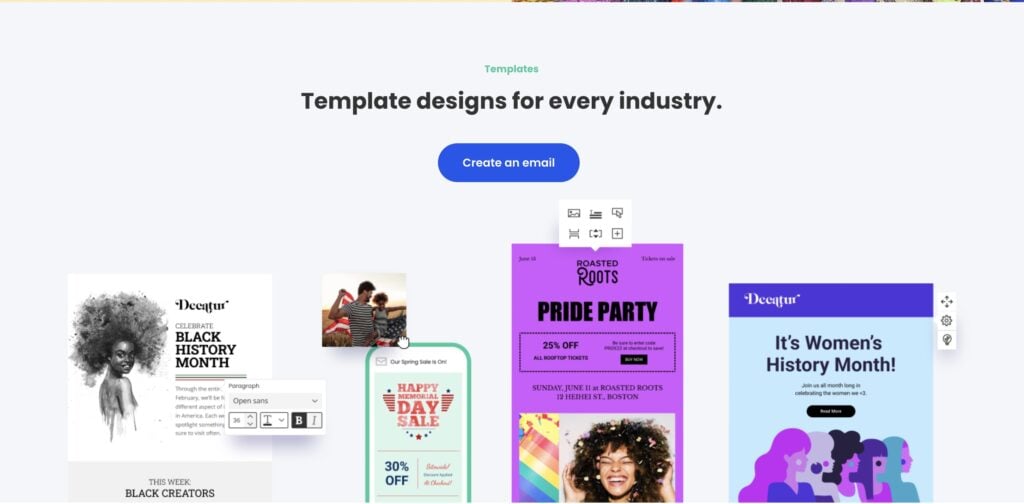
You could even include links in these emails that direct readers to specific blog posts or pages on your website for further reading.
Guest Posting
Guest posting is another powerful way to promote blog posts, especially if you’re looking to reach a wider audience outside of just those who follow you online already.
Reach out to other bloggers in related fields and offer them guest posts featuring topics related to their own niche but written from your perspective; this helps both parties gain exposure while providing valuable content for readers at the same time.
Networking with Other Bloggers
Connecting with other bloggers in your niche is a great way to build an audience for your blog.
Start by joining relevant Facebook groups and Twitter chats or attending local meetups. This will allow you to interact with like-minded people who share similar interests and goals as you do.
Additionally, consider contacting influencers in your industry and offering them guest posts on your blog or asking if they’d be willing to promote it on their social media channels.
Utilizing Online Communities
Online communities are a great place to find potential readers for your blog.
Participate in forums related to the topics you write about, answer questions from members of these communities, and share links back to relevant content on your own website when appropriate.
You can also create polls or surveys that allow users of these online communities to provide feedback which can help inform future content decisions for your blog.
Analyse the Performance of Your Blog
Tracking Metrics and Analytics
It is important to track your blog’s performance in order to understand what works and what doesn’t.
This can be done by using analytics tools such as Google Analytics, which provides insights into page views, time spent on pages, bounce rate, etc.

Additionally, you can use social media analytics tools to measure the engagement of your posts across different platforms.
By tracking these metrics regularly, you will be able to identify trends that can help you optimize your content for better results.
Identifying Areas of Improvement
Once you have tracked your metrics and identify areas where improvement is needed, it is important to take actionable steps toward improving those areas.
For example, if a particular post has low engagement or views compared to other posts, then try changing the title or adding more visuals or videos for better visibility.
Similarly, if a certain type of content does not perform well, then consider switching up the format or topic for future posts.
Knowing who reads your blog is essential in understanding their interests and needs so that you can create content accordingly.
You can find out about audience demographics through surveys or by analyzing data from various sources such as Google Analytics which provides information about age groups, location of readers, devices used while accessing the website, etc.
Understanding this data allows businesses to target specific audiences more effectively when promoting their blogs online.
Monetizing Your Blog
Monetizing your blog is an important part of running a successful blog. Several ways to monetize your blog include advertising networks, affiliate programs, and selling digital products.
Advertising Networks
Advertising networks allow you to place ads on your website or blog in exchange for payment. The most popular advertising network is Google AdSense which pays you per click or impression depending on the type of ad.
Other options include Media.net and Mediavine, which offer contextual ads that match your site’s content.
Join Affiliate Programs
Affiliate programs are another way to make money from blogging by promoting other people’s products or services and earning a commission when someone purchases through one of your links.
Popular affiliate programs include Awin, ShareASale, Commission Junction and many more.
Selling Digital Products
Selling digital products such as ebooks, online courses, or templates can be very lucrative if done correctly.

You will need to create high-quality content that solves a problem for readers in order to get them interested in buying what you have to offer.
Additionally, it helps if you have an email list so that you can promote new products directly to potential customers who already know about your brand and trust it enough to buy from you again in the future.
These are just some of the ways that bloggers can monetize their blogs, but there are plenty more out there waiting for creative entrepreneurs willing to put in the work necessary for success.
Monetizing your blog can be a great way to generate income and support your content creation. Now, let’s look at how you can stay motivated and inspired while blogging.
Notes: If you want to sell online courses, you can use an online course software to help you.
Staying Motivated and Inspired
Staying motivated and inspired is essential for any entrepreneur, content creator, or freelancer. Staying focused on your goals can be difficult when the going gets tough. Here are some tips to help you stay motivated and inspired:
Setting Goals and Deadlines
Setting realistic goals with achievable deadlines is a great way to keep yourself motivated.

Having a timeline in place will help you focus on what needs to be done and how much time it should take. Celebrating small wins along the way will also help motivate you as you work towards larger milestones.
Celebrating Small Wins
Achieving success doesn’t always happen overnight – sometimes, it takes many small victories before reaching a big goal.
Taking time out of your day to celebrate each win, no matter how small, can give you an extra boost of motivation when times get tough.
This could mean treating yourself with something special or simply taking a few moments to reflect on all that has been accomplished so far.
Learning from Mistakes
Making mistakes is part of life, but learning from them is key to staying motivated and inspired in the long run.
Take note of what went wrong during challenging situations so that they don’t happen again.
Knowing that every mistake provides an opportunity for growth can make failure easier to accept while still keeping motivation levels high.
Conclusion
Employing effective blogging techniques can help you create content that appeals to your readers and encourages engagement.
By researching your target demographic, choosing the right topic for them, crafting an engaging title and introduction, and writing quality content with substance and depth, you will be able to establish yourself in the industry.
It may take some time, but if done correctly, it can pay off greatly.


